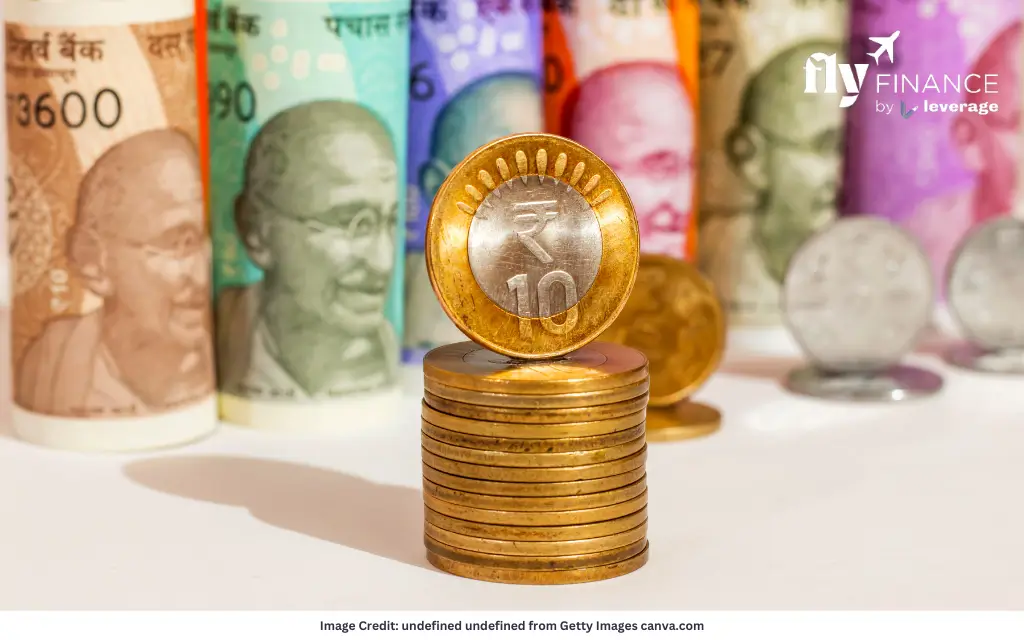The role of Central Banks in foreign exchange markets is crucial. They influence exchange rates and ensure economic stability. If you are a student studying in a foreign country and need to do an international money transfer then you must understand the forex rates. Foreign exchange markets are dynamic and complex systems in which the central bank of a country are key player.
In India, RBI is the central bank of the country and it is responsible for regulating and supervising the financial system in India. RBI’s primary objective is to maintain the stability of the Indian rupee and ensure the orderly development of the foreign exchange market. Let’s understand the role of central banks in foreign exchange markets.
Table of contents
Also Read: How Exchange Rate Works and Who Governs Rate
Major Roles of Central Bank in Foreign Exchange Management
The central bank of the country follows some basic mechanism that affects foreign exchange. Let’s understand some of the major roles played by central banks in foreign exchange management:
Maintaining Economic Stability
One of the major roles of central banks in foreign exchange market is to maintain the country’s economic stability. For example, the RBI monitors inflation and sets interest rates, repo rates and overall financial health. By implementing monetary policies, they can influence the exchange rate and, subsequently, economic conditions. The bank also monitors the entire macroeconomic environment and aims to set policies and guidelines to manage the inflation rates.
Regulation and Oversight
Central banks like the RBI are responsible for regulating and overseeing foreign exchange activities. This includes setting rules for authorized dealers, monitoring capital flows, and ensuring compliance with international standards.
For example, if a particular bank wants to do forex or currency exchange business in India it will follow the set of guidelines issued by RBI. This ensures that they cannot implement any monopoly in the market which will affect the customers. RBI will keep a strong check on the rate of interest, transaction fee, exchange rate offered by banks or unions etc.
Promoting International Trade
One of the other role of Central banks in foreign exchange market is to actively facilitate international trade. The banks aim to simplify and streamline the foreign exchange process for businesses and individuals engaged in cross-border transactions. It also sets policies and guidelines that are focussed on ease of doing business. A positive business environment attracts the businessman to do cross-border business. This becomes profitable for both the parties involved.
Crisis Management
Central banks act as the first line of defence during financial crises. The RBI, for example, played a pivotal role during the 1991 balance of payments crisis in India, taking steps to stabilize the currency and economy. Central banks employ various crisis management tools during financial crises, including interest rate adjustments, liquidity provision, and asset purchases.
They often lower interest rates to stimulate economic activity and purchase financial assets to stabilize markets. These actions aim to restore confidence, mitigate panic, and support economic recovery during turbulent times.
Currency Pegging
Some central banks adopt a currency peg strategy, maintaining a fixed exchange rate between their currency and another. This approach helps stabilize the currency and manage inflation but requires significant reserves to defend the peg against market pressures.
Impact of Central Bank on Exchange Rate Management
One of the primary roles of central banks is to manage exchange rates. In India, the RBI does this through various mechanisms like foreign exchange intervention, maintaining forex reserves etc. The RBI intervenes in the foreign exchange market by buying or selling its own currency to influence its value. For instance, if the rupee is depreciating rapidly, the RBI may sell rupees to support its value. The RBI maintains a substantial reserve of foreign currencies. The currencies are also managed by the monetary authorities on the open market to balance the exchange rate when the market price fluctuates frequently.
- There are some fixed basic techniques of the central bank of a country.
- Central Bank issues and withdraws liquidity in the domestic currency and may also do currency swaps over a short time frame.
- To increase the real value of the currency the central banks may reduce the supply of their currency.
- This will ultimately increase the demand for the currency. On the other hand, selling domestic currency in exchange for other currencies will increase the supply of a currency and its value will ultimately fall.
Also Read: Benefits of Wire Transfer
How the Central Bank Affects Exchange Rates
Maintaining the stability of the currency is one of the primary roles of the central bank of any country. Check below how central banks affect the exchange rate:
- Foreign Exchange Market Interventions: Central banks directly buy or sell their own currency in the foreign exchange market to influence its value. If the bank wants to strengthen the domestic currency, they can sell foreign currency and buy their own. If they want to weaken it, they do the opposite.
- Monetary Policy: Adjustments in interest rates can affect exchange rates. Higher interest rates tend to attract foreign capital seeking better returns. This increases demand for the local currency, leading to its appreciation. Lower interest rates have the opposite effect.
- Open Market Operations: Central banks can use open market operations to control the money supply. By buying or selling government securities, they affect the level of currency in circulation, which can impact exchange rates indirectly.
- Forward Guidance: The communication and guidance provided by central banks about their future monetary policies can impact market expectations. If a central bank signals that it plans to raise interest rates, it can strengthen the currency as investors anticipate higher returns.
- Foreign Exchange Reserves: Central banks hold foreign exchange reserves, and the size of these reserves affects the exchange rates. Larger reserves establish confidence and stability in the currency, potentially leading to its appreciation.
- Macroprudential Measures: Central banks may implement measures to control capital flows and limit speculative activities that can affect exchange rates. These measures can include capital controls and macroprudential policies.
FAQs
Central banks manage their national currency’s value and stability by intervening in forex markets through buying and selling currencies.
Foreign Exchange Rate is the price of the domestic currency concerning a particular foreign currency.
Foreign exchange reserves are the assets that are maintained by the central bank/monetary authorities of a country to check the balance of payments. It also aims to deal with the foreign exchange rate of currency and to maintain stability in the financial.
They influence exchange rates by adjusting interest rates, conducting open market operations, and intervening directly in the forex market.
They intervene to prevent excessive volatility, stabilize the currency, and support economic policy objectives.
Higher interest rates typically attract foreign capital, leading to an appreciation of the domestic currency, while lower rates can have the opposite effect.
Central banks manage reserves by investing them in safe assets, such as government bonds, to earn returns while maintaining liquidity.
A currency peg is a fixed exchange rate between two currencies; central banks use it to stabilize their currency against another major currency.
Central banks track capital flows through reporting requirements for financial institutions and monitoring cross-border transactions to ensure compliance with regulations.
The role of central banks in foreign exchange markets is very important. However, the bank does not directly impact the forex market but it always has an effect indirectly. Policies and actions are implemented in order to maintain the fluctuations and to deal with crises.
To know more about the forex reserve, the best international bank accounts for students, forex and banking experience for global students or international money transfers, reach out to our experts at 1800572126 to help ease your study abroad experience.





























